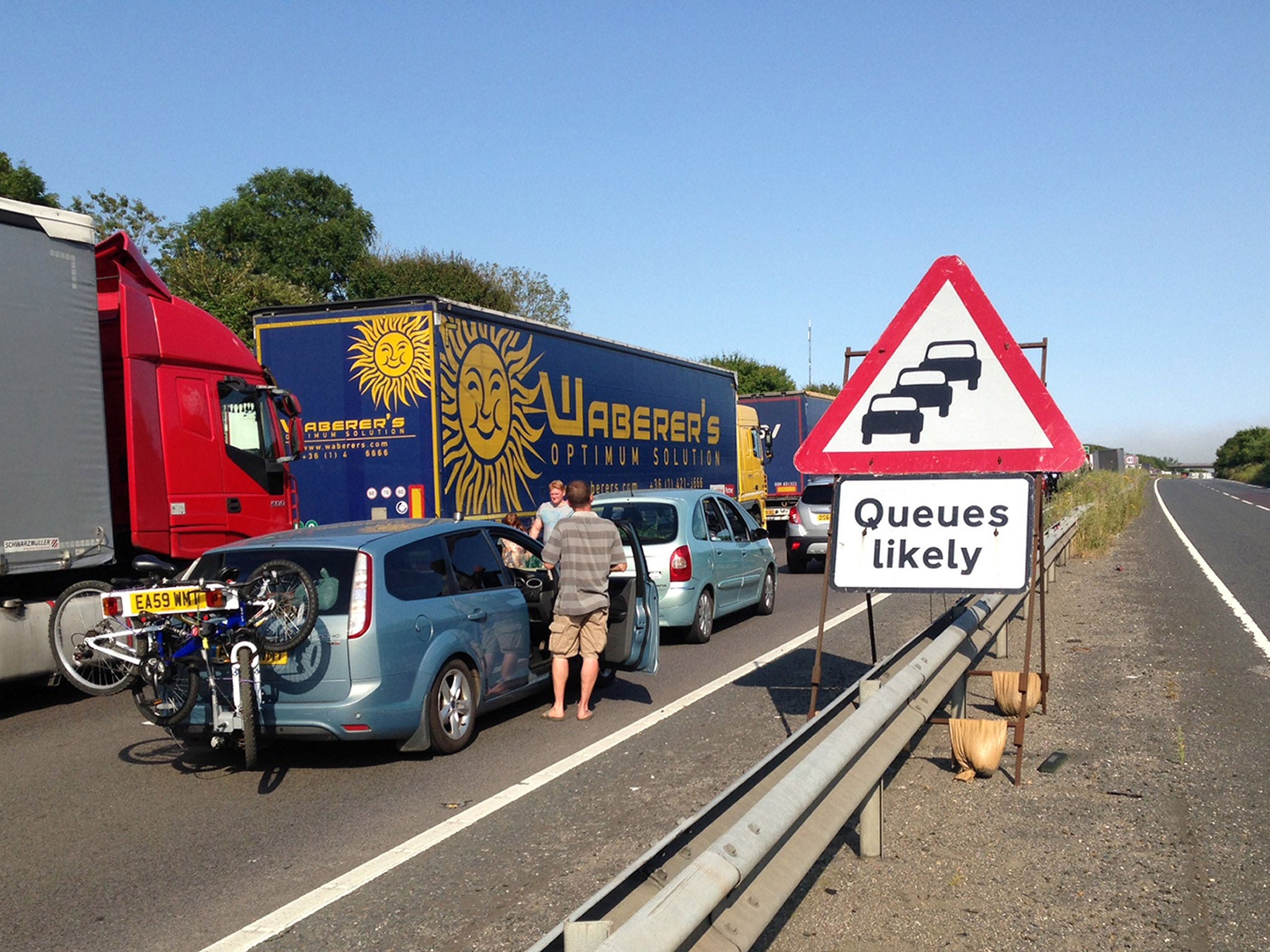After tailbacks at Dover, could British holidaymakers provide ammunition for our Brexit negotiators?
Abroad begins at Calais. The problem is, we adore it – and everyone knows that


In perhaps a first for the entente cordiale, a Frenchman has deemed the suffering of British holidaymakers last weekend as “unacceptable”. And they weren’t even in France at the time; they were in Dover, trickling past the new 100 per cent security screening set up by French officials for the busiest weekend of the year so far. Some families were stuck for more than 12 hours.
Jean-Marc Puissesseau, president of the Côte d'Opale Chamber of Commerce, said he was “very ashamed of this situation” created by tough new checks on motorists departing from Dover. He demanded that Paris send more bottes sur le terrain – boots on the ground – to keep the British rolling to Calais.
He would say that, of course. The traders of the Côte d'Opale thrive on UK visitors, whether they are exploring the exquisite villages of the Pas de Calais or simply filling their boots at a hypermarche before taking the ferry or tunnel home. And part of Puissesseau's job is to run the port of Calais, the biggest conduit for British travellers to France.
The campsite proprietors of Normandy and Brittany, the market traders of “Dordogneshire” and the hoteliers of Paris and Nice are equally opposed to barricades that stop a potential market of 50 million people (my estimate of the number of holders of valid British passports) travelling and spending.
The UK tourism deficit could hit £20bn this year. While incoming visitors will spend around £22bn, British tourists exporting themselves will spend upwards of £40bn abroad. About three-quarters of that largesse will be dispensed in the EU.
Spain grabs the largest slice of the cake, likely to approach a record £7bn this year, representing hundreds of thousands of jobs in a country that has been through the economic wringer. Indeed, there is a strong correlation between our favoured holiday destinations and financial misfortune: Portugal, Italy and Greece are prominent recipients, while Cyprus and Malta also depend on Brits desperately seeking sun.
For a slice of the electorate, it’s fair to say a vote to Leave signalled a wish to return to an earlier time: 1966, say, when England ruled world football and the vast majority of UK holidaymakers spent a summer week or fortnight at a British beach.

The steady increase in overseas visits over the past half-century will go into reverse next year. The effect of the post-referendum weak pound will feed through to higher holiday prices. But the UK will remain second only to Germany in its value to foreign tourist destinations.
So could our holiday habits provide useful ammunition to the Government’s Brexit negotiators? One problem: there is no obvious “…or else”.
Brits love the Pigs (Portugal, Italy, Greece and Spain). Many holidaymakers would not countenance switching to Morocco, Turkey or plucky Gibraltar. The Government will not reintroduce currency controls of the sort that, in 1966, made Gibraltar more accessible than Malaga. So I believe the most likely use of people power will be resist red tape to protect the interests of expatriate Brits who enjoy life about 15 degrees closer to the Equator than the UK can manage.
Abroad begins at Calais; we adore it, and everyone knows that.
Join our commenting forum
Join thought-provoking conversations, follow other Independent readers and see their replies
Comments
Bookmark popover
Removed from bookmarks